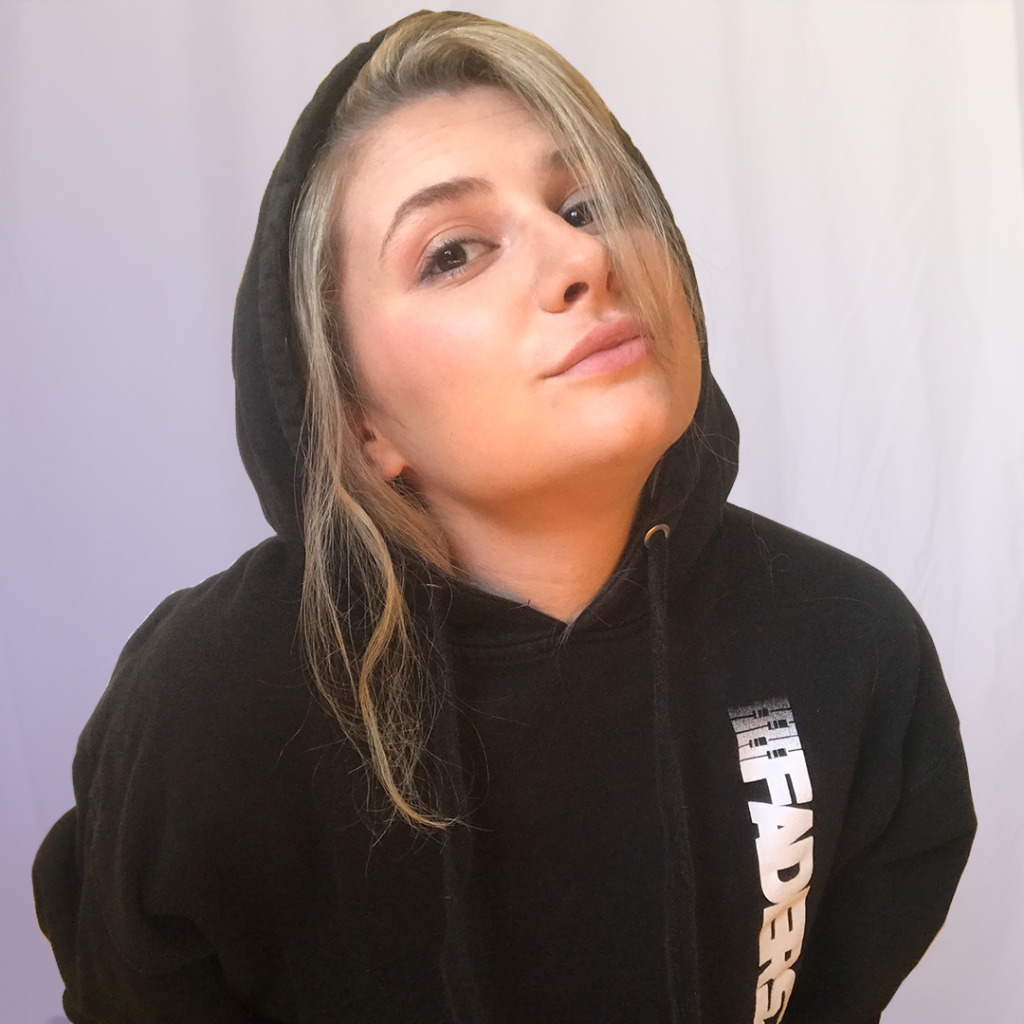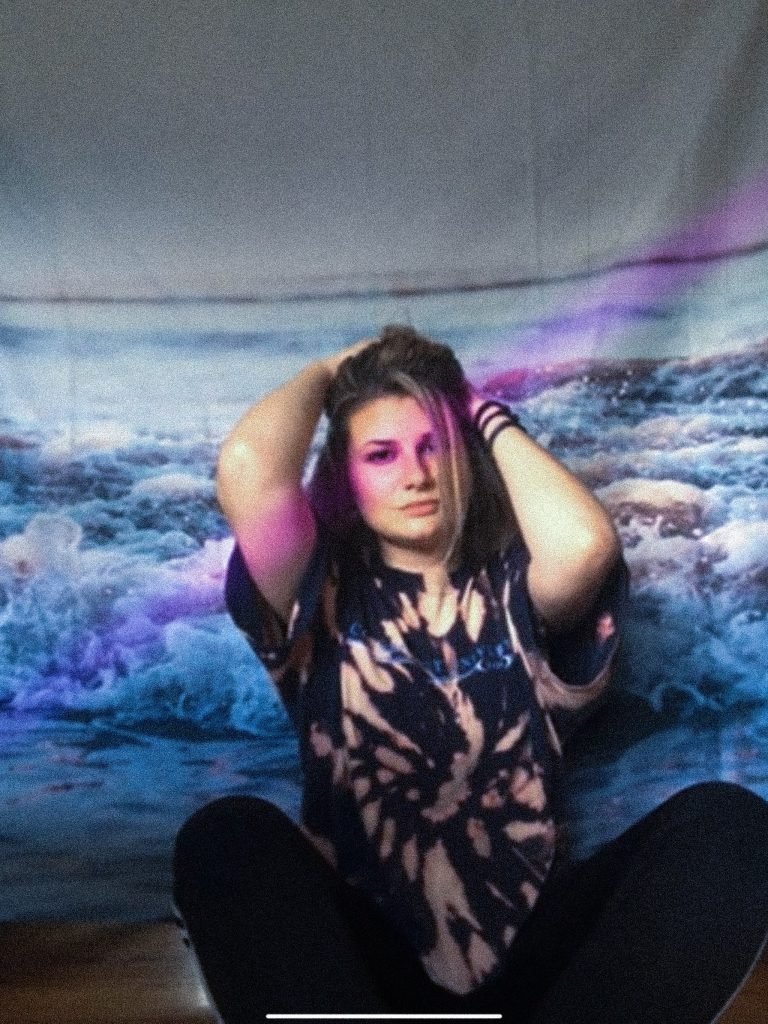With mental health continuing to be a struggle for so many people inside and outside the music industry, Zie West thought it was important to have a conversation about all things mental health. We thought it was important to have an open conversation about the topic to bring awareness and help end the stigma around mental illness. We got into personal experiences, ways to end the stigma, and everything in-between…because Mental Health MATTERS.

Why was it important for you to talk about mental health within the music industry?
Mental health is one of those things that’s talked about, but not really talked about in the industry. We, as artists, write these really emotionally charged songs that highlight some of those challenges, but beyond the actual songs there isn’t much of a conversation going on. I want people to know that I’m here for them, and that mental health is real and important.
Not to sound like a ‘Boomer’, but with social media, we’re constantly seeing this highlight reel of everyone’s lives. And, we all play into it, even myself. I’ll post a happy photo, when in reality, I don’t even want to get out of bed that day. I primarily struggle with depression mixed with light anxiety, which makes for some very interesting days, especially since I am an artist with performance anxiety. I’ve gotten a lot better with performing, but it’s still something that I really struggle with. Mental illness is not something that people always notice. It’s not like a cast on a broken arm, it’s internal, so people don’t always realize when you’re working through it. It’s not always considered a “real sick,” which adds this whole other layer to the stigma because there’s not only an external struggle, but a also this internal struggle of, like, ‘Am I making this up?’ I have to take a second to remind myself that my emotions are valid, and not to push those feelings down or ignore them.What sort of tools do you use to help cope with your mental health struggles as a musician?
My go-to coping mechanisms are to go for a drive or listen to music loud. And, I love Bob’s Burgers and watching comedy. I really just try to allow myself to be human. There are days where I am writing from a darker place, but not putting pressure on myself to write constantly. I just tell myself that I don’t need to write every single second of every day. I can take a second to breathe. Having a chance to take a step back allows me to address things from a healthier standpoint.
I am also lucky to have such a great support system. I like to lean on my team or my friends when I’m feeling down, just letting them know, ‘hey, I’m having a tough day.’ It’s important to have a network that you can lean on. It’s almost like a weakness in our society and industry to lean on others. We’re taught to be so independent, and not allow our emotions to affect our work. But, nobody has gotten anywhere, in any industry, without support in some capacity. It’s imperative that we allow ourselves to rest, and take time for our mental health.What pressures in the music industry do you think contribute to the mental health problem within the industry?
This industry is incredibly demanding and so emotionally charged. And, it’s the entire music industry, not just artists. You have to be “on” all the time. It’s so easy to tell ourselves that we need to work seven days a week because it’s such a competitive career path. We really just don’t give ourselves a second to breathe. It’s normal to always be going all the time, and it’s very rare for someone in this industry to have a nine to five schedule. We’re all struggling with similar things, so it’s easy to look around and assume that everyone is doing better than we are, and we just keep pushing through and pretending we’re fine, even if we’re struggling.
How can we overcome the stigma and start having open conversations about mental health issues?
It can be nerve-wracking as an artist to open up about mental health struggles. There’s a lot of pressure being in the spotlight and having people watch your every move. But, I think the little things are just as important, as the big things. So, just bringing the topic of mental health into everyday conversations can go a long way. Like, checking in with your friends. We’re so self-consumed that when someone doesn’t text us back we’re like, ‘oh, they hate me,’ when in reality, they could be going through something themselves.
Even just throwing out a tweet that says, “I’ve had a difficult day,” at least shows people that everyone has struggles, and it’s okay to not be happy all the time. I think just using your platform in any way that you can is a big step. As artists we are able to reach a substantial amount of people, so it’s important to use your platform to talk about these serious topics. And, then of course talking about it through your music, as well.

There’s often a lot of focus on the mental health issues faced by high profile musicians. How can we provide support for all artists, regardless of status?
On a very basic level, just be willing to accept the people that we idolize. Artists are afraid to lose fans, or their platform, or respect by speaking up about these kinds of topics. Remember that these people are humans, and we need to be able to accept them as they are. Everyone works through their own things.
Look at the Ariana Grande and Mac Miller situation. So many people were quick to come at Ariana for the issues of their relationship, instead of sympathizing with the fact that she lost someone close to her and letting her grieve her loss. They didn’t stop to think about the emotional turmoil she was going through. On a more positive note, Halsey recently did a really cool interview about Bipolar Disorder. When people of this status open up about their own personal struggles, it almost makes it ‘cool’ to be healthy. Right now, it’s such a big trend to fetishize sadness, but that doesn’t have to be the case. The trend could be making music from a healthy place. I think the overall message here is to be kind; accept each other for being flawed humans, instead of placing artists on a pedestal. We are all human, and we all have our own internal struggles.In 2020, have we made progress in destigmatizing mental health issues?
That can be hard to say, but with everything going on, I think we have made some progress. From my experience, or at least in the circles of people I surround myself with, people are constantly talking about it now. I mean, you really can’t get around it, especially being in the middle of the COVID-19 pandemic. So, I would like to think that some progress is being made. Talking about it is the first step, and we seem to be there, so I have high hopes.What about the idea of band/artist therapists, trained mental health professionals that know and understand the struggles of a touring lifestyle? Would this be beneficial for all touring musicians to have access to?
I really didn’t know that band therapists were a thing! In my opinion, I think that most everyone can benefit from therapy.
A lot of musicians move out of their hometowns at a pretty young age to pursue music, and need to adjust quickly to a totally different lifestyle. Our industry is so unique. It’s not a normal way of living, and we need to work through the milestones and stress of this path. And, when you’re coming down as an artist, that can be extremely hard. You’ve had all of this attention for so long, and that changes in an instant. It’s not a normal thing to go through, so I think it would be so helpful to have someone that can help work through these constant and inevitable changes within the industry. It would be a game changer to have a band therapist as part of the artist’s team. Making this the standard would normalize mental health on such a large scale. I mean, if you’re around a therapist all the time, you become accustomed to it, and have someone there to teach you healthy coping mechanisms along the way. It becomes ordinary.Thanks for chatting with us about mental health within the industry, and sharing some of your personal experiences. You said you released new music last Friday, can you tell us about that?
I just released a two-track project called Violent Nights/Sunrise. Violet Nights is a reflection on growing up with a distaste for the person in the mirror. The pop track was produced by Ben Runyan of City Rain, and is a light way to look back on growing pains. Sunrise is an ethereal conversation about losing yourself before the start of new horizons. Written with legendary producer Focus…, the song is a reminder that we are delicate humans even as we embark on new successes.Thank you Zie West for opening up about your own struggles with mental health, and bringing awareness to such an important topic within the industry. Mental Health Matters.
Also, make sure to follow Zie West on social media (links below), and check out her newly released project on Spotify.